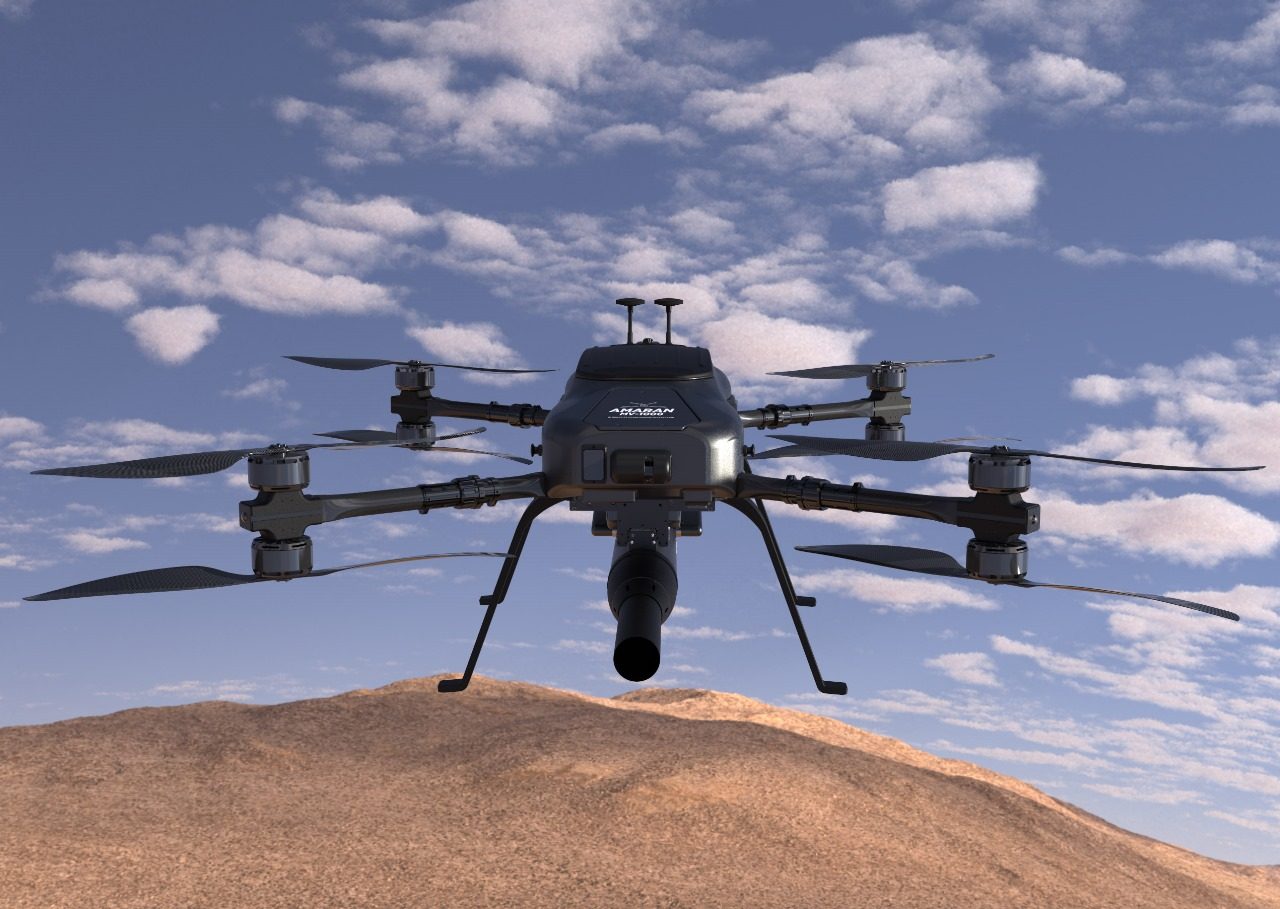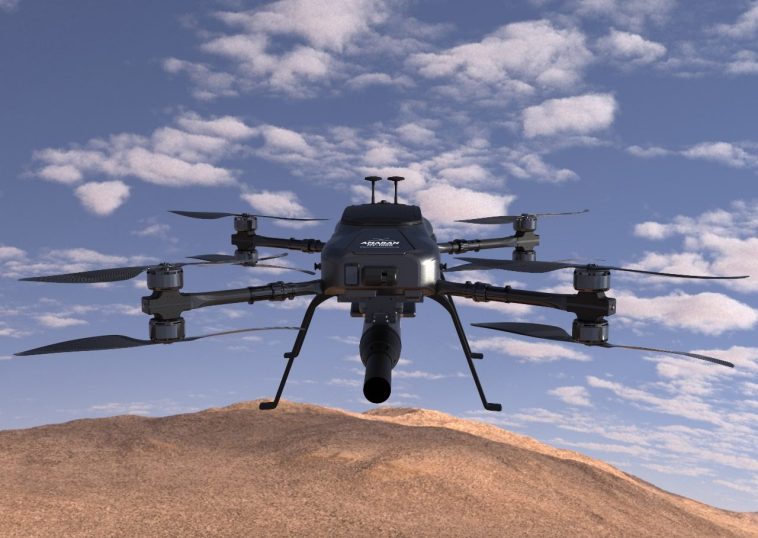
Garuda Aerospace’s Bold Leap into Global Markets
The drone industry has experienced rapid growth in recent years—with technological breakthroughs and expanding applications revolutionizing industries from agriculture to security. One company making headlines is Garuda Aerospace, an innovative drone manufacturer backed by cricket legend MS Dhoni. Following its burgeoning success in Sri Lanka, Garuda Aerospace has now secured an export license, setting the stage to extend its market reach to the USA, Australia, and the Middle East.
This pivotal moment not only amplifies the company’s stature as a trusted and compliant drone original equipment manufacturer (OEM) but also highlights an emerging trend: global manufacturers are increasingly tapping international markets by addressing sector-specific demands. Garuda Aerospace’s strategic focus on its flagship Garuda Kisan Drone—a model ideally positioned for precision farming—illustrates how cutting-edge technology can power transformative change in agriculture and security.
Defining the Strategic Landscape
By securing its export license, Garuda Aerospace has effectively charted a path through several tricky parts and tangled issues that often arise in international trade. Securing regulatory approvals and adhering to local market rules can be intimidating and nerve-racking endeavors. Yet, by successfully meeting these requirements, the company has shown it can find its way even when faced with confusing bits and complicated pieces of international trade law.
The export strategy centers on delivering solutions designed for precision agriculture. Agritech has become a super important sector in countries like the USA and Australia, where effective farm management and modern techniques are key to boosting productivity. In parallel, the company is also addressing the high-security and surveillance needs in the Middle East—a region loaded with issues and tension when it comes to modernizing security and infrastructure. This dual-focused approach underlines the robust nature of Garuda Aerospace’s business model and its readiness to tap into diversified revenue streams.
Precision Farming: A Game-Changer for US Agriculture
One of the most intriguing elements in Garuda Aerospace’s global expansion lies in its emphasis on precision farming. American agriculture, already vast and diverse, faces several tricky parts when it comes to modernizing plantation practices. The traditional methods, though time-tested, often include complicated pieces that slow down operations and lead to mismanagement of resources.
Garuda Aerospace’s Garuda Kisan Drone is crafted to address these challenges by deploying state-of-the-art technologies that help farmers monitor crop health, optimize water usage, and enhance overall yield. By integrating real-time data analytics with drone technology, these drones allow farmers to steer through the twists and turns of modern agricultural management.
How the Garuda Kisan Drone Boosts Efficiency
The Garuda Kisan Drone is more than just a piece of sophisticated machinery—it’s a tool that empowers farmers by taking a closer look at the small distinctions impacting crop performance. Here’s a breakdown of the key functionalities that make these drones a must-have for agriculture:
- Real-Time Data Collection: The drones capture live data on crop health, soil moisture, and pest infestation levels, enabling farmers to respond promptly.
- Precision Spraying: By targeting specific areas, the drones minimize waste and reduce the environmental footprint, making them a sustainable option.
- Field Mapping: Advanced imaging techniques help in mapping large tracts of farmland, identifying risk zones and areas requiring immediate intervention.
- User-Friendly Interfaces: Simplified control systems ensure that even those new to drone technology can figure a path through easily.
These advantages underscore why the Garuda Kisan Drone is perfectly poised to meet the escalating demands of today’s agricultural sector in the USA. By modernizing traditional farming practices, the drone provides a practical solution to the challenges that farmers face, allowing them to make informed decisions based on fine shades of subtle data.
Australia’s Growing Demand for Drone Technology
Australia, recognized globally for its diverse agricultural landscape and advanced agribusiness sectors, presents an excellent opportunity for innovation-driven companies like Garuda Aerospace. Australian farms and agritech firms are continuously exploring new ways to incorporate technology into their operations—especially in regions where water scarcity and extensive land use are pressing issues.
In this environment, the Garuda Kisan Drone proves to be a key asset. Its precise operations significantly cut down operational costs by eliminating the nerve-racking need for indiscriminate chemical application. Instead, farmers can apply treatments exactly where needed, ensuring optimal resource management. The simplicity of its interface and robust performance during challenging weather conditions make it an attractive technology for Australian farmers striving to keep pace with evolving market demands.
Why Australian Agronomists Are Embracing Drone Solutions
Several factors drive the adoption of drone technology in Australia, including the need to enhance precision farming practices and to monitor large, remote areas. Here are the main reasons drone technology is becoming integral to Australia’s agricultural advancement:
- Sustainable Farming Practices: Drones help in targeting crop diseases early, enabling preventive measures while reducing overall chemical use.
- Cost Efficiency: The technology reduces the need for manual monitoring, cutting down labor costs and resource waste.
- Data-Driven Decisions: Real-time imaging provides clear insights, making it much easier for agronomists to take a closer look at the fine points of field management.
- Coverage of Remote Areas: Large-scale farms benefit greatly from drones that can get around tough terrain quickly and efficiently.
Agriculture in Australia now benefits from these innovative approaches, and companies like Garuda Aerospace are at the forefront of delivering technology that not only meets but exceeds the demands of modern farming practices. Their approach demonstrates that even off-shore markets can embrace high-tech solutions when the product is designed to tackle the little details that matter most.
Enhancing Security and Surveillance in the Middle East
The Middle East represents a dynamic market where security and surveillance technologies have become increasingly essential. With rapidly developing infrastructure and a need for real-time monitoring systems, experts in the region are looking for reliable solutions that can provide both efficiency and accuracy under stiff conditions. In this respect, Garuda Aerospace’s expansion into the Middle Eastern market is both timely and well-calculated.
The drones being exported to this region are not just about agricultural efficiency—they are engineered to meet tougher security benchmarks. Their capabilities in surveillance and data capture during security operations illustrate how technology can be harnessed to manage the nerve-racking realities of today’s security challenges.
Drones: The New Frontier in Middle Eastern Security
Countries in the Middle East are increasingly relying on advanced technology to enhance their security frameworks. Here are some of the key benefits of integrating drone technology into security and surveillance operations:
- Persistent Surveillance: Drones can continuously monitor vast areas, providing round-the-clock security coverage with minimal human intervention.
- Rapid Deployment: In environments where situations can escalate quickly, drones ensure a lightning-fast response, targeting areas that need immediate attention.
- High-Resolution Imaging: Advanced imaging and real-time data transmission mean decision-makers receive high-quality insights in the nick of time.
- Cost Reduction: With drones taking over routine surveillance tasks, resources can be better allocated, reducing labor and maintenance costs.
By entering the Middle Eastern market, Garuda Aerospace is positioning itself as a key player in an arena where security technologies are full of problems and require innovative solutions to address hidden complexities. The combination of robust drone performance and secure data handling addresses both the technical and practical requirements of a market that is meticulously managing its safety standards.
Boosting India’s Drone Ecosystem and the Global “Make in India” Initiative
Garuda Aerospace’s momentum on the international stage is a significant boost for India’s domestic drone ecosystem. The export license secured by the company aligns perfectly with the Government of India’s “Make in India” initiative—an endeavor aimed at fostering homegrown technology and promoting Indian innovations on a global level.
This alignment with national priorities not only advances India’s reputation as a hub for cutting-edge drone technology but also underscores the country’s increasing global competitiveness. By taking a closer look at both the domestic and international benefits, it becomes evident that initiatives like these help streamline the tricky parts of regulatory compliance and technical standards across borders.
Strengthening Global Supply Chain Partnerships
Garuda Aerospace has not only focused on expanding its export footprint but has also invested in building substantial global partnerships. The company’s strategic associations with established names such as Elbit Systems, Lockheed Martin, Cognizant, Thales, and SAS Greece reveal its commitment to navigating the maze of international aerospace and defense sectors.
These partnerships serve as a robust network that supports both operational expansion and innovative research. The benefits of such collaborations include:
- Technological Exchange: Working with global giants provides access to cutting-edge research and development, streamlining the process of getting around the little twists of technological upgrades.
- Market Penetration: Established partners help in finding your way through local markets, opening doors that might otherwise remain closed.
- Enhanced Credibility: Collaborations with well-known international companies boost consumer trust and underline the quality of products offered by Garuda Aerospace.
- Shared Expertise: Learning from each partner’s core competencies ensures that both operational and technical growth proceed on a solid foundation.
This strategy of cross-border technological collaborations is a testament to how diverse expertise can be leveraged to address the complicated pieces of the advanced drone market. With each new partnership, Garuda Aerospace not only expands its market reach but also reinforces its position as a leading global drone exporter, dedicated to balancing innovation with compliance.
The Role of Brand Ambassadors in Global Expansion
High-profile endorsements often serve as catalysts for brand success in competitive markets. The partnership with former cricket superstar MS Dhoni is a particularly interesting facet of Garuda Aerospace’s public image. Dhoni’s support is much more than symbolic—his involvement brings with it a legacy of trust, performance, and an unwavering commitment to excellence.
In markets where personal endorsements can tip the scales, having a figure as revered as Dhoni provides a subtle yet significant boost. His presence helps to instill confidence among consumers and business partners alike, serving as a bridge between innovative technology and mainstream acceptance. This kind of strategic branding is key to overcoming the nerve-racking challenges of entering markets that are already full of established players.
Impact of Celebrity Endorsements in B2B and B2C Markets
Celebrity endorsements can be particularly effective in both business-to-business (B2B) and business-to-consumer (B2C) settings. Consider the following advantages:
- Enhanced Brand Visibility: The ambassador’s public image helps ensure that the brand stands out in crowded markets.
- Trust Building: A well-respected personality provides reassurance, making it easier for customers to get into advanced technology solutions.
- Market Penetration: In sectors where traditional marketing methods might struggle to break through, a high-profile endorsement can be the critical factor that opens up new revenue channels.
- Cultural Connect: A local hero like Dhoni resonates with a broad audience, bridging potential cultural gaps that may exist in new markets.
In essence, leveraging a relatable figure not only amplifies the company’s image but also provides a competitive edge that is super important when entering new, often intimidating markets.
Anticipating Future Growth and Market Opportunities
Looking ahead, the roadmap for Garuda Aerospace is lined with exciting prospects. The company has set an ambitious target to expand its operations into at least 50 countries in the foreseeable future. Achieving such a goal is more than a mere numbers game—it is about cultivating a global network that can support a symbiotic exchange of ideas, technologies, and best practices.
Future growth will likely be driven by several factors. First is the continued demand for advanced drone applications in agriculture and security. Second is the constant evolution of drone technologies, which promise to simplify many of the confusing bits and complicated pieces of traditional operations. Finally, building further strategic alliances with renowned international companies will be critical in ensuring that Garuda Aerospace remains at the cutting edge of a rapidly evolving industry.
Key Areas for Future Expansion
In anticipating future growth, there are several practical areas where Garuda Aerospace can focus its attention:
| Market | Primary Focus | Future Potential |
|---|---|---|
| USA | Agricultural precision, real-time crop monitoring | Integration with IoT devices, predictive analytics |
| Australia | Water management, sustainable farming practices | Expansion into remote sensing, weather prediction integrations |
| Middle East | High-security surveillance, border protection | Enhanced delivery logistics, emergency response systems |
Each market presents its own set of tangled issues and subtle parts to consider. However, by identifying the little details that matter, such as local regulations and technological needs, Garuda Aerospace is well prepared to carve out a niche in each region and build a sustainable competitive advantage.
Small Business Implications and Economic Impact
The impact of Garuda Aerospace’s global expansion goes beyond the immediate successes of its export strategy. For local economies, particularly small businesses connected to the agricultural and tech sectors, the ripple effects could be significant. Modern drone technology is poised to transform small-scale farming methods, reducing operational costs and increasing overall productivity. This is especially meaningful in regions where even minor efficiency gains can have a substantial economic impact.
Moreover, as the company forges global partnerships, the ensuing technology transfer and skill development can lead to a more dynamic ecosystem in India and beyond. The “Make in India” initiative is not merely a slogan—it is a call to action that reaffirms the importance of local expertise in the global supply chain. With its robust export strategy, Garuda Aerospace is not only making high-tech solutions accessible across borders but is also setting an example for how local businesses and small enterprises can participate in and benefit from technological advancements.
Benefits to Local Industries
The integration of advanced drone solutions provides several practical benefits to small businesses and local industries. These include:
- Boosted Productivity: Adoption of precision technologies allows for more efficient use of resources in farming and security operations.
- Job Creation: As companies expand, there is often a subsequent increase in demand for skilled workers, technicians, and support staff.
- Innovation Boost: Exposure to high-level technology encourages local firms to innovate and adapt quickly to changing market environments.
- Enhanced Competitiveness: By reducing the nerve-racking challenges associated with traditional technologies, small businesses can remain nimble and competitive both domestically and internationally.
This intersection of technology and traditional sectors highlights how rapidly evolving industrial technology—from unmanned aerial systems to data analytics—can have a transformative effect on everyday business operations. Ultimately, the global expansion of Garuda Aerospace reinforces a broader narrative: when innovation meets strategic regulatory compliance, the rewards are shared far and wide.
Managing Global Challenges and Hidden Complexities
Of course, any journey on the international stage is bound to encounter its fair share of obstacles. The act of exporting advanced drone technology comes with a series of tricky parts and tangled issues, from adhering to diverse regulatory frameworks to managing intricate supply chain logistics. However, Garuda Aerospace’s methodical approach to these challenges provides a blueprint for other companies looking to make their mark on global markets.
The company’s ability to work through the complications of international compliance is evident in its readiness to meet the demands of diverse markets. By investing in research and development and staying updated on the little details that govern international trade, Garuda Aerospace is finding innovative ways to figure a path through the legal and logistical maze that often appears intimidating to up-and-coming technology firms.
Tackling Export Challenges Step by Step
It is worthwhile to break down the approach Garuda Aerospace appears to be taking, as it sheds light on how companies in similar sectors can manage their way through tricky regulatory and operational hurdles:
- Regulatory Readiness: Prioritize obtaining the necessary export licenses and ensuring compliance with both local and international standards.
- Strategic Partnerships: Build alliances with reputable global companies to share expertise and jointly develop market-specific solutions.
- Localized Adaptations: Tailor technology to meet the specific requirements of target regions, whether it be for agriculture in the USA and Australia or security in the Middle East.
- Continuous Improvement: Employ feedback loops and invest in innovation to consistently tackle any newfound tricky parts or tangled issues that may arise.
This systematic approach not only secures a competitive edge but also provides a roadmap for how to take a closer look at the complexities of international commerce with a calm and calculated strategy, ensuring that operational hurdles remain surmountable and well-managed.
Concluding Thoughts on a Global Vision
In sum, Garuda Aerospace’s latest milestone is a striking example of how a homegrown company can adopt an international mindset—safely maneuvering through regulatory puzzles and delivering technology that addresses concrete market needs. Expanding into the USA, Australia, and the Middle East, the company is not only setting its sights on new revenue channels but also contributing to the broader evolution of the global drone industry.
By focusing on sectors like precision agriculture and high-end security, Garuda Aerospace is deliberately positioning itself at the intersection of technology and practicality. The benefits are manifold: from empowering farmers with data-driven decision-making tools to bolstering national initiatives such as “Make in India,” the company’s strides forward have far-reaching implications.
Moreover, in an increasingly competitive technological landscape, its robust network of international partnerships and strategic endorsements—epitomized by the involvement of MS Dhoni—provides a clear signal of its readiness to endure the nerve-racking challenges of global expansion. It also highlights how forward-thinking companies can manage the many subtle parts of international business while staying true to the critical values of reliability, innovation, and sustainable growth.
For industry experts, investors, and policymakers alike, Garuda Aerospace’s unfolding story offers valuable lessons on designing a scalable export model in a market that is both evolving and intensely competitive. As we observe the company’s journey, it becomes evident that success in today’s technological era depends on embracing change, sorting out the tangled issues of regulatory compliance, and continually refining the product to meet the specific demands of diverse, international landscapes.
There is a certain optimism that accompanies such ventures—one that goes beyond mere market expansion and ventures into the realm of economic transformation. Whether it’s improving agricultural yields in rural areas or enhancing security measures in strategically sensitive regions, the far-reaching impact of this expansion is a win not just for Garuda Aerospace, but for the global community that stands to benefit from these innovative, eco-friendly, and technologically advanced solutions.
Looking Ahead: An Era of Technological Synergy
Looking ahead, it is clear that the drone industry will continue to form a critical component of global technological synergy. As Garuda Aerospace charts its course toward operating in at least 50 countries, we see a future where small businesses, large enterprises, and government agencies work in tandem to create environments that are more efficient, productive, and secure. The integration of precise agricultural technologies and sophisticated surveillance systems into everyday practice is just the beginning of what promises to be a revolution in how industries meet modern demands.
This moment reminds us that progress—often hidden in the fine points of innovation—requires the courage to take calculated risks while remaining adaptable to the evolving global landscape. For policymakers, the success of initiatives like “Make in India” is not an isolated phenomenon; rather, it speaks to the potential of local talent and industry to rise above intimidating challenges and become global leaders in emerging technologies.
In closing, Garuda Aerospace’s achievement serves as a compelling case study in international expansion. When innovation meets perseverance, and when advanced drone technology finds applications in diverse sectors—from precision farming in the USA and Australia, to high-security surveillance in the Middle East—the results can be transformative. The company’s journey is a beacon of hope and a roadmap for any enterprise daring enough to figure a path through the tricky parts of modern global business.
The road ahead is unquestionably full of both obstacles and opportunities. By taking a balanced, strategic approach that embraces local nuances and global standards alike, Garuda Aerospace is setting a high-standard—one that paves the way for a future where technology not only meets the demands of the present but also anticipates the needs of tomorrow.
Originally Post From https://www.suasnews.com/2025/07/ms-dhoni-backed-drone-startup-garuda-aerospace-bags-export-license-and-ready-to-enter-usa-australia-and-middle-east-markets/
Read more about this topic at
Global Drone Market Outlook (2025–2030)
Russia lifts lid on secretive drone factory as satellite …


